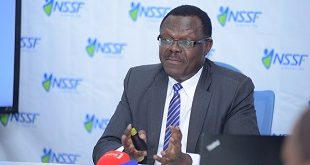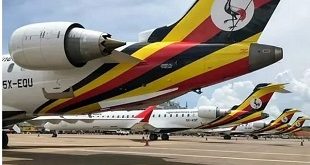Secondly, Rwanda demonstrates the major weakness of using GDP per capita to understand the wellbeing of the citizens of a country. Assume someone earns $10,000 per month in Kampala and another earns $7,000 per month in Rwanda. Whose wellbeing would be better? The guy in Kampala has to incur extra expenses to compensate for poor pubic goods. For example, he has to construct the road to his house or drive through mud and potholes. He has to buy an SUV and spend more money on it regularly replacing shock absorbers because of potholes. He has to wash the car twice a day because of the mud and dust.
On many occasions, the Kampala resident has to drive (burning fuel and breaking his car in potholes), to go jog, run, or walk in a gym because there are no pedestrian sidewalks. He has to knock boda bodas because at night there are no streetlights. He has to worry about accidents (and suffer anxiety) because traffic lights don’t work. He has to pay medical bills for his relatives and housekeepers because of lack of a national medical insurance system. All these are costs on wellbeing. How do we price the benefits of a good and clean environment that add to one’s wellbeing?
When I was young and intelligent, I used to think that it is possible to replicate the Rwandan experience everywhere. Now that I have grown old and thoughtful, I think if it were easy to replicate, many poor nations would have done it. It is not true that all leaders of poor countries are selfish and greedy thugs out to line their own pockets. All too often, the way politics is organised in poor (and even rich countries) makes it very difficult to mount successful reform of the status quo. This is because entrenched interests that must be accommodated for the system to work benefit from many of the dysfunctions we see. Any attempt at reform finds resistance from such powerful interests. The experience of Jennifer Musisi in Kampala and the subsequent obliteration of NRM in the last elections has driven this point home.
That is why most successful reform tends to happen during war or after devastation brought by war. May be Rwanda works in large part because the genocide destroyed old centers of power, thereby making it possible to pursue comprehensive reform without significant resistance from entrenched interests. This sounds callous but nations like Germany and Japan that were almost obliterated by World War Two enjoyed the fastest growth thereafter, becoming second and third largest economies in the world than nations like France and UK that had not suffered massive destruction. This has also been the experience of East Asia’s success stories – South Korea and Taiwan.
 The Independent Uganda: You get the Truth we Pay the Price
The Independent Uganda: You get the Truth we Pay the Price




Dignity. This concept can mobilise most of Africa in taking intellectual, political and economic ownership of her destiny. To someone like me who has ended up thinking you can set small objectives and once you have ticked the boxes, you move on, I think we must say NO to food imports. West African food imports grew by 300% in the last 10 years. I believe East Africa could be a pioneer in this department and energise its people around local brands of transformed goods. I would love to read on this subject further. The agricultural/industrial revolutions we are about to embark on must be a source of pride and dignity. Grassroots movements must be created around our thinking elites to accompany the massive investments in infrastructure which have been made. Rwandans believe in Rwanda and they do not let its current status as a poor Nation alter their belief. They have reprogrammed their brains. Not every Nation will become like Rwanda but tue concept of dignity is a powerful one. When Mwenda teased his people with images of Kigali, Ugandan dignity was on full show. I did a similar experience with a Francophone public when the Kayoola bus came out of Uganda. We need media ready to highlight all these amazing stories and ready to expose the historical and contemporary weaknesses of Western Nations on all levels. When I reconnect on social media, I will only focus on highlighting the positive of Africa. Reclaiming one’s dignity is a powerful motivator.
Maybe i need to consult Wikipedia on the definition of democracy if Uganda is example of democratic countries in Africa. The Autocrat admitted giving NRM leaning MP’s 5 Million shillings so that they can vote Jacob Oulanya as deputy speaker. He even appeared in person in parliament to intimidate any challengers to his dynasty.
Previously, someone has come out to state that
whenever Mwenda writes about Rwanda, then, one should expect Rajab’s ugly head
to pop out. Implicitly indicting me of being the “ranter.” If satan
cannot take a nap, how do you expect God to even blink? Impossible. I am aware
that by persistently refusing to accept whatever is being done by the Kagame
regime, I also make the risk of being branded a hater. However, I am a
researcher and a consumer of research, I will rather gleefully take that risk
than to blindly follow the elliptical fallacy that is being dangled around. I’ve
been on a psychological trip. A journey instigated by Andrew Mwenda’s change of
thinking. Andrew informed my thinking when I was still at Kibuli Secondary
School and at a tender age of 14 years. Ever since that time I have been an
avid reader to this day and hopefully sine die. Like the considerable number of
Ugandans, I hurt too- to the drastic change in Mwenda’s analytical
sensibilities lately. Mwenda was the consummate writer, his statements of fact,
statements of value, explanations and conclusions were flawless. He always
brought out the symmetrical dissection on any topical discussion. When I grew
up and setup my offices in Industrial area, I would buy the Independent, get
into my office and lock myself in. Until I was finished with the
“Independent nutrition”, I would never let in anyone not even a
buzzing fly. My loyalty has never wavered even when I crossed to the other side
of the Pacific. But far from then, now, Mwenda mercilessly strangles his own
articles. He cannot publish an article and not put a “disclaimer”
which might read, “When I was still younger and intelligent”, or, “but
I have now grown old and stupid.” To an ordinary eye, this might appear
frivolous and could attract entertainment value. But Andrew is a journalist.
Other than to simply allude to the age factor, what other factors does he give
to explain this change? I want to think and
humbly state that Mwenda’s “U” turn was brought onto him and not unto
himself. We as a country (Uganda) and as a continent (Africa) have been into
captivity for quite some time now. In threatening and survival
situations, we look for evidence of hope – a small sign that the situation may
improve. When a captor shows the victim some small kindness, even though it is
to the abusers benefit as well, the victim pours elixir onto the captor’s trait.
This is more of a survival
technique, however, it can become so intense that the victims actually develop
anger toward those trying to help them. If, for instance, we only have a dollar
in our pocket, then most of our decisions become financial decisions. If our controller
is an abuser, then the majority of our decisions are based on our perception of
the abuser’s potential reaction. We become preoccupied with the needs, desires,
and habits of the abuser. To whom is Andrew trying to help? Me, you or himself?
That question is reflective.
Again, you state some right facts about Rwanda but too shy to call on leaders in Uganda to their responsibility. I understand that true leadership is supposed to be consequential and not mere followership per se. At the WEF, PK stated to the likes of Andrew ” There are many things we can’t afford, but do wealso need money to sweep our compounds”. There are many things that are not working in Africa and Uganda, which are as a result of leaders failing to hit the right chord with the masses-our leaders and their families live at large and yet ask their followers to tighten their belts?? It can’t and won’t work. As you rightly said Andrew, Umuganda is successful largely because Pk preaches water and drinks the same, or the public so thinks. In Uganda, our President is simply reminding us how rich he is, expanding his clowns in Parliament, paying them as they and he wishes etc.while the police he uses to keep public discontent are now threatening to protest due to non-payment of allowances. True, leaders reflect who we are but who we are is shaped and molded by those in leadership. That said, let us not exaggerate stuff: there are muddy areas in Kigali, slummy ones too. There are beautiful places in Kampala and Uganda’s rural construction is unbeatable in the region- as we admire Kigali, Rwandans admire rural Kabale, Ntungamo, Mbarara, Masaka and the houses Ugandans have constructed. The lesson is simple. We have a lot to learn from each other, our leaders can and should be demanded to do more to facilitate learning of these lessons across borders and communities or get out of the kitchen. These things can be done. Stop presenting Rwanda’s story as an unreplicatable miracle. M7 wields as much power as PK, he chooses to use it to keep Lukwago out of office but not to clean the streets. It is a choice issue. M7 has not promoted dignity in Uganda, the leadership surrounding him tells you as much. To a large extent, you now have to be a crook to come through the ‘democratic’ process in our Country and M7 likes it that way.
Poverty doesn’t explain the reason Africa is in a sorry state, mismanagement does. How do you explain the life of an Angolan and its rulers beyond the first daughter being one of the richest on the continent without any trade? How do you explain Equatorial Guinea’s GDP pa capita of $ 20,000 with majority of the people in abject poverty? How do you explain Nigeria’s poverty with its oil?
I am not a regular visitor to Rwanda, and I know nothing a bit beyond the immaculate environs of Kigali. I am therefore not sure of how much Kigali is replicated to other major towns of Rwanda, to the small trading centers, and finally to the households. With deep admission of ignorance, I wish we should not run the risk of basing on the cosmetic beauty of Kigali to judge the beauty of Rwanda as a country and its humanity. And how much, anyway, does this mundane beauty translate to actual human dignity upon which it is said to be based? Someone in the know could answer me. Just asking!
Namesake, the organisation of urban spacein Rwanda is not limited to Kigali. Even a small border town like Rwempasha and Nyagatare, buildings had to be broken to enforce the new plans. Ruhengeri has pedestrian walkways and streetlighting that we haven’t begun to even imagine. Kigali is not replicted only in major towns but all urban spaces.